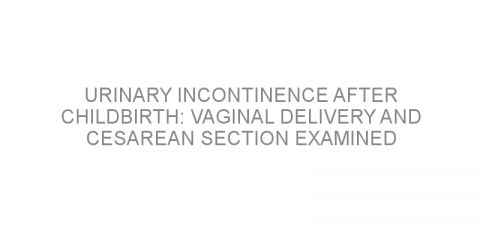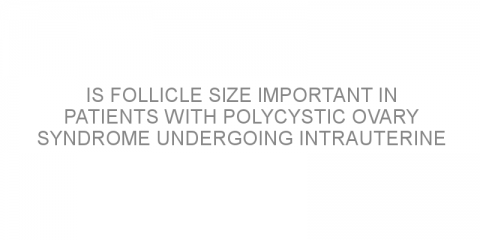In a nutshell This study evaluated the long-term effects of child delivery on urinary incontinence. Researchers concluded that vaginal childbirth was associated with an increased risk of long-term urinary incontinence, and preventive measures should be recommended for such women. Some background Childbirth can weaken pelvic-floor muscles and...
Read MoreLibrary Item Posts on Medivizor
An overview on artificial urinary sphincters
In a nutshell This study reviewed artificial urinary sphincters for treating urinary incontinence. The authors concluded that artificial urinary sphincters can be used as an effective first-line procedure for managing incontinence after prostate surgery. Some background Urinary incontinence is common among men undergoing prostate surgery. Prostate...
Read MoreBulking injections effective even after radiotherapy
In a nutshell This study examined the effects of polyacrylamide hydrogel (Bulkamid) in treating stress urinary incontinence in women that have undergone radiotherapy to the pelvic region. Researchers concluded that polyacrylamide hydrogel injections were safe and effective for the treatment of severe incontinence, regardless of previous radiotherapy...
Read MoreDoes obesity affect the outcome of vaginal sling procedures?
In a nutshell This study investigated whether obesity affects the outcome of vaginal sling procedures. Researchers concluded that vaginal sling procedures are as safe and effective in treating urinary incontinence in obese women as they are in non-obese women. Some background Vaginal sling procedures are currently the most common type of...
Read MoreAre transvaginal mesh procedures a good long-term treatment for pelvic organ prolapse?
In a nutshell This study evaluated the long-term effects and safety of transvaginal mesh procedures. Researchers concluded that transvaginal mesh procedures are associated with moderate long-term physical repair of pelvic organ prolapse. Some background Transvaginal mesh procedures involve the implantation of a net-like structure through the...
Read MoreIs follicle size important in patients with polycystic ovary syndrome undergoing intrauterine insemination?
In a nutshell This study explored the impact of follicle size and endometrial thickness on pregnancy rates in women with polycystic ovarian syndrome (PCOS) undergoing ovarian stimulation and intrauterine insemination (a fertility treatment). The study concluded that pregnancy rates were not affected by follicle size or endometrial thickness. Some...
Read MoreCan adding bevacizumab to chemotherapy before surgery improve response?
In a nutshell The authors aimed to evaluate the effectiveness and safety of combining bevacizumab (Avastin) and chemotherapy prior to surgery in breast cancer. This study showed that adding bevacizumab to chemotherapy increased response rates among women with non-metastatic (has not spread) breast cancer. Some background...
Read MoreRemaining pain after treatment in early rheumatoid arthritis
In a nutshell This study explored the frequency of remaining pain in those with early rheumatoid arthritis (RA) after three months of treatment with methotrexate (Trexall). The results showed that remaining pain was common after treatment. Some background RA is a chronic autoimmune disease (when the immune system attacks healthy tissue) that...
Read MoreLooking for colorectal cancer patients with newly-diagnosed metastasis for regorafenib trial
In a nutshell This phase 2 study recruiting in New York aims to determine the effectiveness of regorafenib (Stivarga) in patients with metastatic colorectal cancer. The main outcome will be time to disease progression. The details The standard treatment for metastatic (spread to other areas of the body) colorectal cancer is a combination of...
Read MoreHeart attacks in women
In a nutshell This paper by the American Heart association provides information on acute (sudden) heart attack in women. Some background Coronary heart disease occurs when there is a build-up of fats (such as cholesterol) in the blood vessels. This causes poor blood flow and can lead to a heart attack. This remains understudied,...
Read MoreEffect of diet on reducing blood pressure
In a nutshell This study examined how different diets could be used to lower high blood pressure. They found that the effect on blood pressure from a modified diet replacing carbohydrates with fat was comparable to a low fat diet. Some background The Dietary Approaches to Stop Hypertension (DASH) eating pattern emphasizes fruit and...
Read MoreLooking for stroke patients with difficulty using language to receive transcranial electrotherapy
In a nutshell This phase 2 trial located in North Carolina and Washington DC aims to determine how effective high definition transcranial direct current stimulation is in patients who have language difficulties after stroke. The outcome to be measured is the ability of participants to name objects. The details Stroke (no enough blood supply...
Read More













